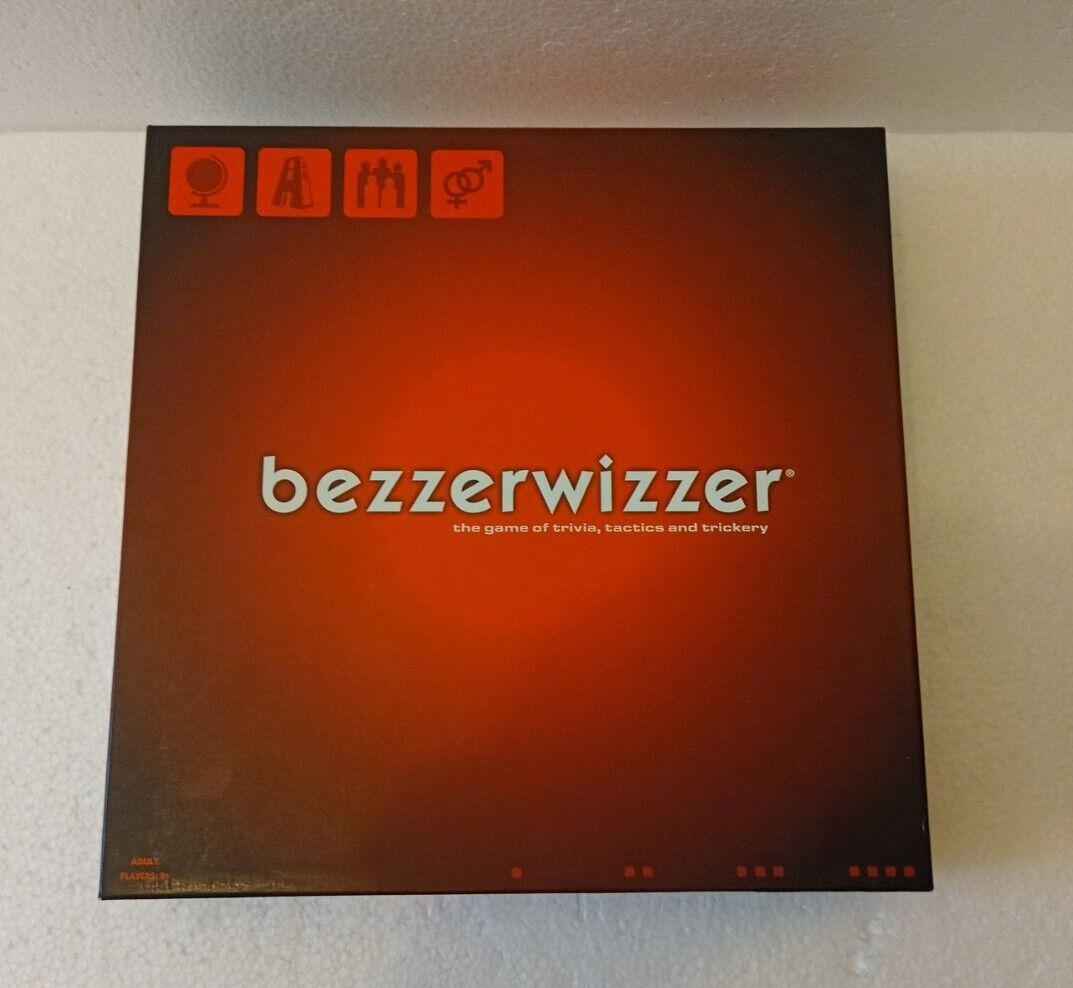Bezzerwizzer (2007)
Bezzerwizzer
Bezzerwizzer is a trivia board game that was created in Denmark in 2007 by Jesper Bülow. The name “Bezzerwizzer” is derived from the German word “besserwisser,” which means “know-it-all.” The game was designed to be a more strategic and competitive version of traditional trivia games, with players able to steal categories from their opponents.
Why is Bezzerwizzer Popular?
Bezzerwizzer is popular because it offers a unique twist on traditional trivia games. The ability to steal categories from opponents adds a strategic element to the game, making it more engaging and competitive. Additionally, the game is designed to be played by both casual and serious trivia fans, with questions ranging from easy to difficult.
Game Components of Bezzerwizzer
How To Setup Bezzerwizzer
To set up Bezzerwizzer, players are split into teams. Each team selects a playing piece and takes two Bezzerwizzer tiles (B) and one ZWAP tile (Z) of the same color. Teams then draw four category tiles at random from the bag and place them on their tile board in order of preference. The team that plays first is chosen randomly, with no real advantage to going first.
Gameplay Mechanics and Game Objective
Player Experience
Bezzerwizzer offers a dynamic and interactive experience, encouraging players to strategize and bluff. Players can specialize in categories they are knowledgeable about and use tactics to outmaneuver their opponents. The game is designed for 2-12 players, making it suitable for small gatherings or larger groups, and is aimed at players aged 14 and above.
Pros
Cons
Personal Thoughts on Bezzerwizzer
Bezzerwizzer is ideal for those who enjoy trivia games but also appreciate the addition of tactical elements. It is perfect for family game nights, social gatherings, or any event where a fun and engaging party game is desired. The game’s ability to accommodate a wide range of players and its relatively short playtime make it a versatile and enjoyable addition to any game collection. However, it may not be the best fit for those seeking a purely competitive trivia experience without strategic elements.
We are supported by our audience. When you purchase through links on our site, we may earn an affiliate commission, at no extra cost for you. Learn more.

